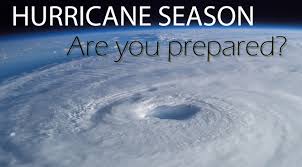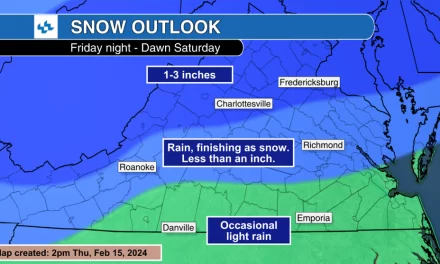RICHMOND, VA – As the Atlantic hurricane season officially commences, Governor Glenn Youngkin urges residents across our Commonwealth to prioritize preparedness and resilience in the face of potential storms. Last week, Governor Youngkin visited the Virginia Department of Emergency Management and was briefed on hurricane preparations underway. With hurricane season running from June 1st through November 30th, proactive measures are crucial to safeguarding lives and property.
“As we head into hurricane season, Virginians from every area of the Commonwealth need to be prepared and I’m asking Virginians to have a plan, sign up for emergency alerts and know your evacuation route,” said Governor Glenn Youngkin. “Now is the time to prepare your families and property, check your insurance coverage, and identify those trusted sources of information that can help keep you safe.”
Now is the time to focus on the importance of preparedness plans, emergency supply kits, and communication strategies. Collaborative efforts between government agencies, first responders, community organizations, and individual citizens are essential for effective disaster response and recovery.
We cannot ignore the fact that storms that start in the lower Atlantic or Gulf States also have the potential to come north and cause significant damage to Virginia. This is why we encourage all Virginians across the Commonwealth to take the time to become prepared.
“As we embark on another hurricane season, it’s imperative that we stand ready, united, and prepared,” said Shawn Talmadge, State Coordinator at the Virginia Department of Emergency Management. “Our focus remains steadfast: ensuring the safety and resilience of our communities. Let’s make our plan, emergency kit, and stand together in the face of whatever storms may come our way.”
Take the time now to review your insurance policy, secure your property, and create a plan that includes arrangements for your pets or those that may need extra assistance. Below are a few critical steps to ensure you and your family’s safety.
Know your zone. Evacuation may become necessary depending on the track and severity of the storm. Review Virginia’s evacuation zones at KnowYourZoneVA.org. Users can enter their physical address in the search bar of the website to view and confirm their designated evacuation zone.
Complete a family communication plan. Prepare for how you will assemble and communicate with your family and loved ones. Identify meeting locations and anticipate where you will go. Federal Emergency Management Agency guidance on family communications plans is available here.
Check your insurance coverage. Remember, there may be a waiting period (typically 30 days) for a flood insurance policy to become effective and be aware that not all storm-related losses, such as flooding, are covered under traditional policies. Now is the time to review your coverage and contact your insurance agent for any changes. If you are not insured against floods, talk to your insurance agent, shop private flood insurance, or visit floodsmart.gov. If you are a renter, now is the time to ensure you have adequate coverage to protect your belongings. It is also imperative that you have adequate coverage on all insurance policies to ensure it reflects current home values and replacement costs.
Make an emergency kit. Assemble an emergency kit that includes nonperishable food, water, medication, sanitary supplies, radios, extra batteries, and important documents. Learn more about building an emergency supply kit here.
Stay informed. Identify where to go for trusted sources of information during emergencies. Check with your local emergency management office to sign up for alerts that go directly to your phone or email. Be sure to monitor local news for watches and warnings in your area and follow directions of local officials. Power outages are always a concern during weather events—make sure you have a battery-operated radio available so you can still receive life-saving alerts.
There are many resources available to assist with hurricane planning efforts. Learn more about preparing your business, your family, and your property against hurricane threats (and other disasters) at vaemergency.gov/prepare and ready.gov/hurricanes.









